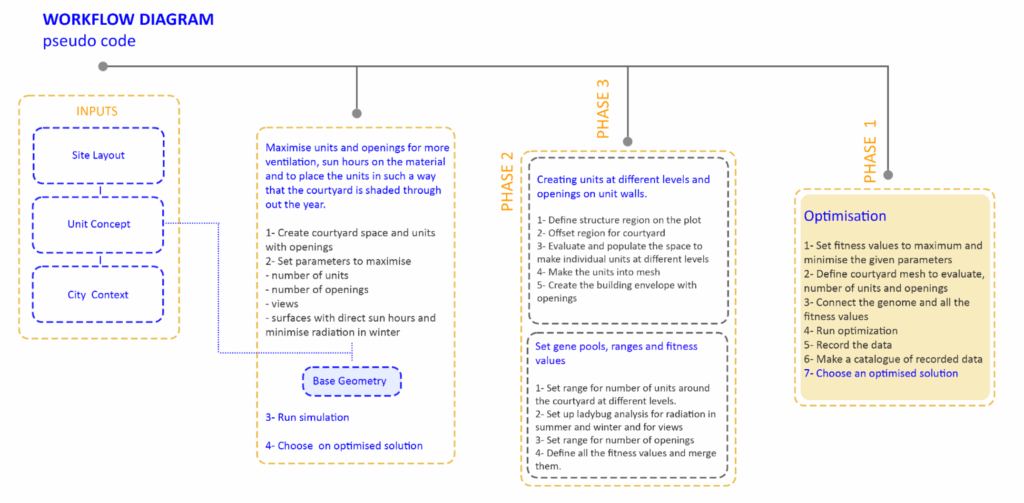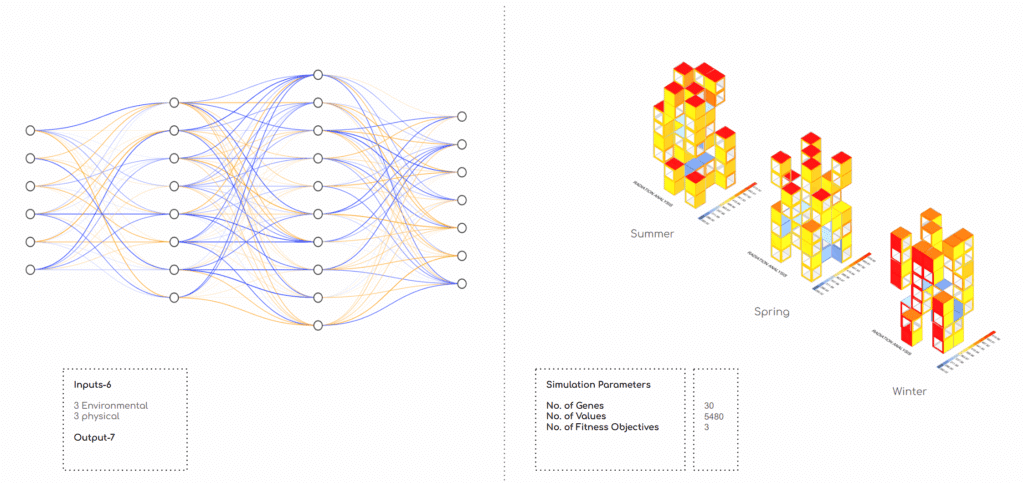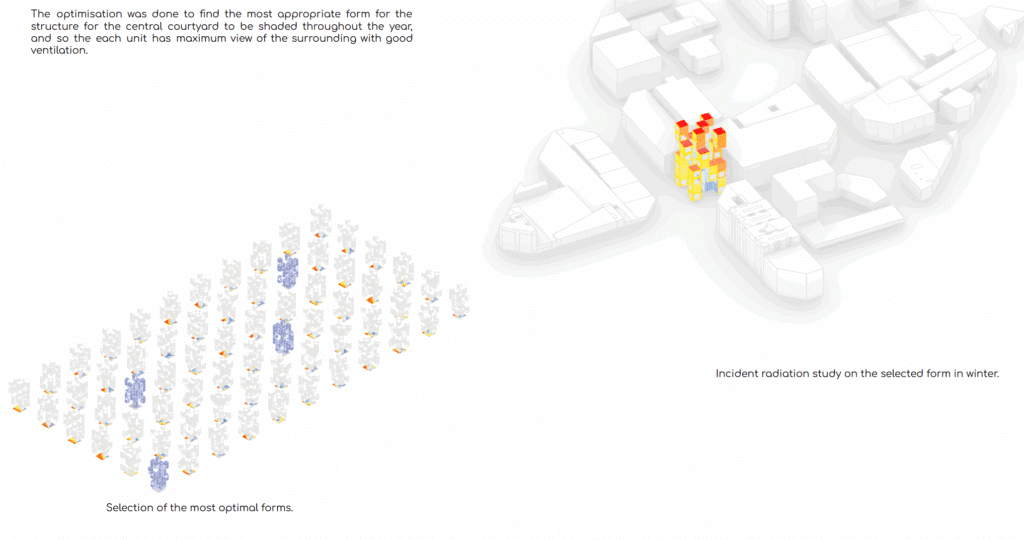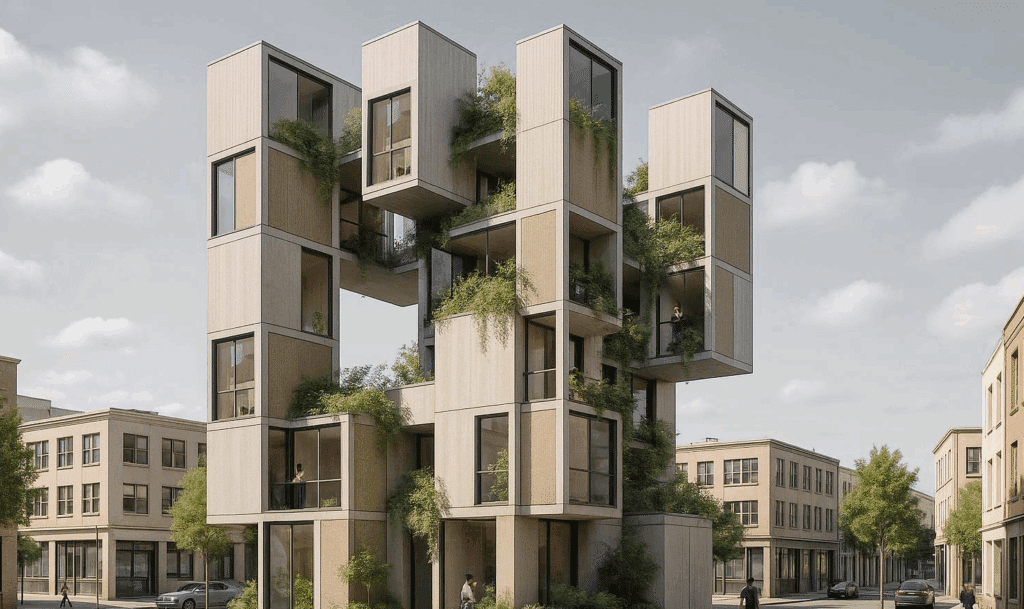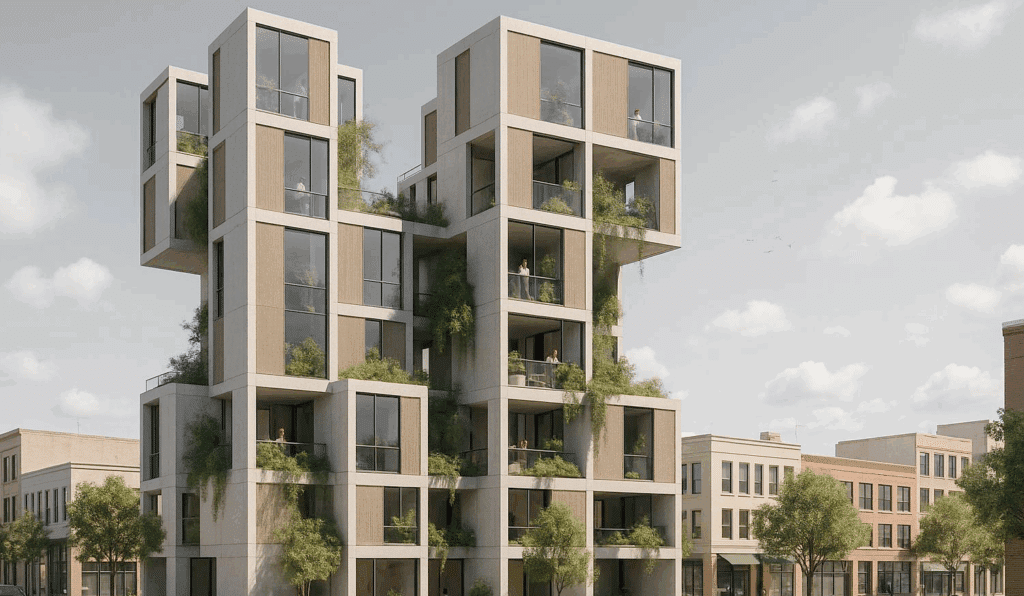This project explores the climatic optimization of modular student housing units located in Barcelona, each with dimensions of 5m x 4m x 7.5m. The focus is on developing comfortable, energy-efficient living spaces by strategically analyzing and refining the positioning of openings, enabling effective cross ventilation, and incorporating humidity-absorbing esparto material as part of the building envelope.
Given the Mediterranean climate of Barcelona-marked by hot, humid summers and mild winters, the project uses climatic simulation tools to test a range of design configurations. These include evaluating natural airflow patterns, solar exposure, and humidity levels to achieve thermal comfort through passive strategies. Special emphasis is placed on cross ventilation, enabling fresh air to circulate efficiently through the compact units, reducing the need for mechanical cooling systems.
Through iterative simulations, we aim to determine the optimal design compositions that balance environmental performance with user comfort, resulting in a sustainable and responsive housing solution tailored for students in urban settings.
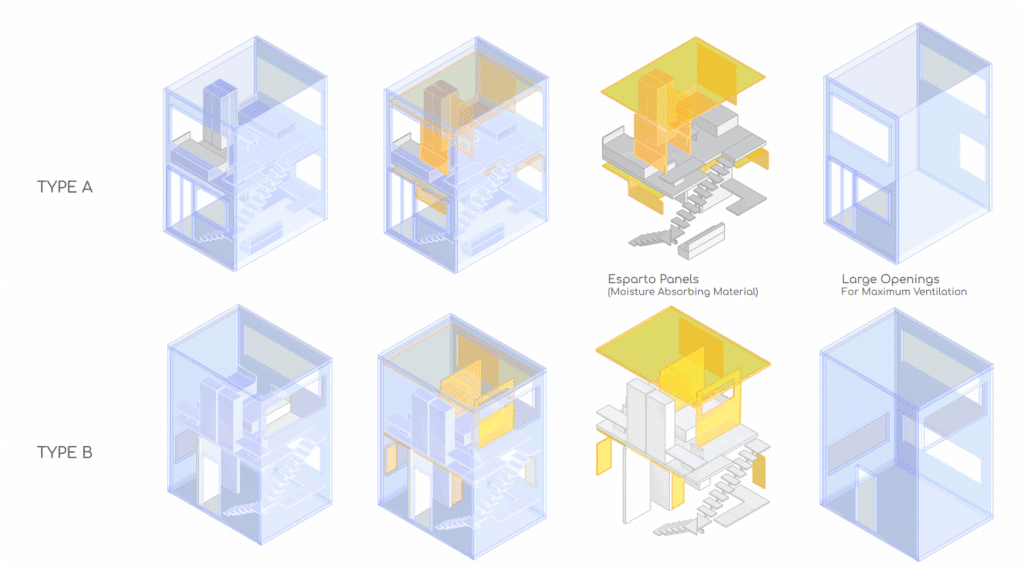
Each unit with dimensions of 5m x 4m x 7.5m. The focus is on developing comfortable, energy-efficient living spaces by strategically analyzing and refining the positioning of openings, enabling effective cross ventilation, and incorporating humidity-absorbing esparto material as part of the building envelope.
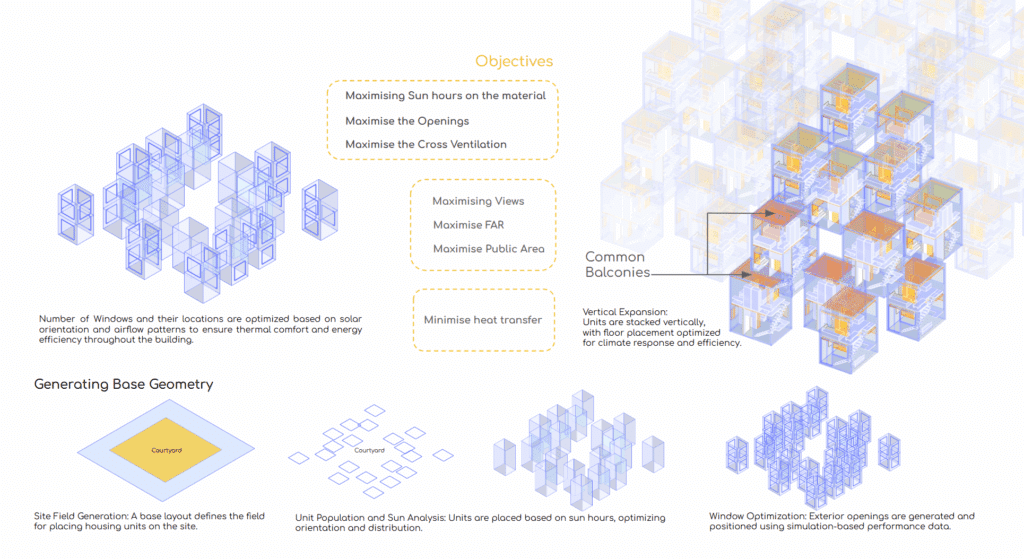
Given the Mediterranean climate of Barcelona-marked by hot, humid summers and mild winters, the project uses climatic simulation tools to test a range of design configurations. These include evaluating natural airflow patterns, solar exposure, and humidity levels to achieve thermal comfort through passive strategies. Special emphasis is placed on cross ventilation, enabling fresh air to circulate efficiently through the compact units, reducing the need for mechanical cooling systems.
Through iterative simulations, we aim to determine the optimal design compositions that balance environmental performance with user comfort, resulting in a sustainable and responsive housing solution tailored for students in urban settings.
